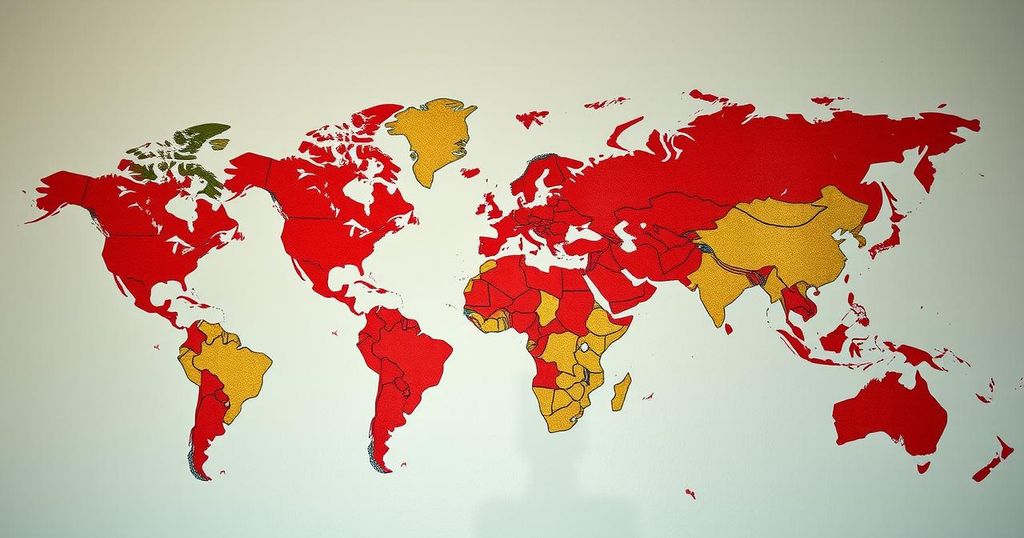Türkiye has emerged as a vital mediator in international diplomacy, exemplified by its role in resolving the Somalia-Ethiopia conflict. By establishing the “Ankara Declaration,” Türkiye facilitated dialogue that balanced the needs of both nations while maintaining regional stability. Its active foreign policy, led by President Erdoğan and Foreign Minister Fidan, has positioned Türkiye as a significant player in global mediation efforts, addressing complex issues in various geopolitical contexts.
In an era marked by escalating global tensions and unresolved conflicts, Türkiye’s role as a mediator has garnered increasing attention, particularly in the context of the dispute between Somalia and Ethiopia. The resolution facilitated by Türkiye not only illustrates a commitment to peace in the Horn of Africa but also reflects its strategic intent to solidify its place as a vital player in international diplomacy.
The core of the discord between Somalia and Ethiopia was rooted in Ethiopia’s leasing of Berbera Port in “Somaliland,” which Somalia viewed as an infringement upon its sovereignty. Somaliland, an unrecognized territory, operates independently yet is acknowledged as part of Somalia in international law. Türkiye’s intervention was crucial in preventing further escalation of the conflict, ensuring regional stability through diplomatic channels.
By underpinning the dialogue with the “Ankara Declaration,” Türkiye showcased its diplomatic philosophy centered on mutual respect and collaborative engagement. Its ability to leverage the intertwined economic interests of both nations facilitated a platform for negotiation. For Ethiopia, maintaining access to Somaliland’s port was essential for trade stability, while Somalia benefited from Türkiye’s reputation for honoring sovereignty concerns, rooted in its long-standing humanitarian contributions.
Türkiye’s increasing influence in international mediation extends beyond the Horn of Africa. Over the last decade, it has actively engaged in various global conflicts, exemplified by its mediation efforts during the Ukraine crisis, where initiatives like the Black Sea Grain Agreement helped avert a significant food crisis amid ongoing hostilities.
Under the leadership of President Recep Tayyip Erdoğan, Türkiye has embarked on an assertive foreign policy that emphasizes its capacity as a mediator. Hakan Fidan, now Türkiye’s Foreign Minister, has been instrumental in shaping these diplomatic strategies. His experience has reinforced Türkiye’s multifaceted approach to conflict resolution, underscoring its commitment to addressing complex geopolitical issues.
Türkiye’s involvement in the Syrian civil conflict further illustrates its dedication to regional stability and the alleviation of humanitarian crises. By facilitating negotiations and providing refuge for displaced populations, Türkiye has made significant contributions to mitigating the ongoing turmoil within the region.
The agreements reached in the Somali-Ethiopian negotiations showcase Türkiye’s potential to transform discord into constructive dialogue. However, challenges remain as Ethiopia’s dependence on the port persists and Somalia’s apprehensions regarding territorial integrity continue to linger. Sustaining the momentum of the “Ankara Declaration” will necessitate Türkiye’s ongoing engagement and deft handling of these delicate issues.
As Türkiye’s diplomatic presence grows, it must navigate the complexities of maintaining impartiality while continuing to exert its influence. Balancing these dynamics will test Türkiye’s credibility as a neutral mediator, especially given the intricate nature of the disputes in which it engages.
Through an approach rooted in dialogue rather than dominance, Türkiye is establishing itself as a significant actor in international relations. Whether addressing regional disputes or broader conflicts, its emphasis on cooperation serves as a testament to the effectiveness of constructive engagement. As noted by Dr. Kaan Devecioğlu, Coordinator of North Africa Studies at ORSAM, “Türkiye’s neutral, constructive, and inclusive approach was pivotal to achieving this success.” This encapsulates Türkiye’s influential role in fostering peace and stability, particularly in regions fraught with discord.
Türkiye’s rising influence in global diplomacy can be traced back to its strategic positioning and proactive engagement in regional conflicts. The country’s mediation efforts, including its role in the Horn of Africa, reflect a commitment to conflict resolution amidst a backdrop of complex geopolitical dynamics. As global tensions continue to mount, Türkiye’s ability to navigate these challenges and promote stability is increasingly recognized on the international stage.
In summary, Türkiye’s mediation in the Somali-Ethiopian conflict exemplifies its broader diplomatic efforts aimed at fostering stability in an unpredictable world. By leveraging shared interests and adopting a constructive dialogue, Türkiye has successfully positioned itself as a key mediator. However, the challenges posed by ongoing territorial concerns and regional dependencies necessitate continuous involvement to maintain progress. As Türkiye continues to expand its diplomatic footprint, its capacity to act as a neutral facilitator will be crucial in addressing future conflicts.
Original Source: www.dailysabah.com






